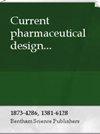Bear Bile Powder Improves Ulcerative Colitis by Protecting the Intestinal Mechanical Barrier and Regulating Intestinal Flora
IF 2.6
4区 医学
Q2 PHARMACOLOGY & PHARMACY
引用次数: 0
Abstract
Background: Bear Bile Powder (BBP) is a traditional Chinese medicine. It has been widely used in clinical practices and has shown a good anti-inflammatory effect. However, its effectiveness in treating Ulcerative Colitis (UC) has not yet been studied. Objective: To explore the therapeutic effect of BBP on ulcerative colitis and its potential mechanism by combining acute ulcerative colitis mouse models and comprehensively observing various physiological and biochemical indexes of mice. Methods: The acute ulcerative colitis model was induced by drinking water containing dextran sulfate sodium salt (DSS) for 7 days. Studies were divided into Control, DSS, DSS+ Sulfasalazine (SASP, 450 mg/kg), and DSS + bear bile powder group (BBP, 320 mg/kg). The Disease Activity Index (DAI) and colonic tissue damage of mice were evaluated. Tissue immunofluorescence and western blot were used to determine related tight Junction Proteins (TJs), and 16S V34 amplicon was used to analyze intestinal microorganisms. The therapeutic effect of BBP on ulcerative colitis model mice was studied comprehensively. Results: After treatment, BBP can significantly improve the physiological condition of acute UC mice and reduce DAI fraction. Compared with the DSS group, the BBP group significantly increased the colon length and significantly decreased the injury fraction of acute UC mice. Regarding the intestinal mechanical barrier, BBP significantly increased the expression of ZO-1, Occludin, and Claudin 1 protein in colon tissue. In terms of microbial community, the intestinal microbial diversity of mice decreased after the administration of BBP, but there was no significant difference in structural composition between the BBP group and the Control group. By comparing the four groups of species with significant differences, it was found that the BBP group significantly reduced the abundance of specific harmful microorganisms at the order, family, genus, and species levels. Conclusion: Oral administration of a certain dose of BBP can significantly improve the symptoms of ulcerative colitis in mice. Part of the reason may be that it increases the expression of tight junction proteins, regulates specific flora in the intestine of mice, and maintains intestinal barrier homeostasis. In the future, the clinical application value of BBP will be explored, and BBP will be developed as a drug with the potential to treat UC and alleviate the pain of UC patients other: not熊胆粉通过保护肠道机械屏障和调节肠道菌群改善溃疡性结肠炎
背景:熊胆粉(BBP)是一种传统中药:熊胆粉(BBP)是一种传统中药。它已被广泛应用于临床,并显示出良好的抗炎效果。然而,熊胆粉治疗溃疡性结肠炎(UC)的有效性尚未得到研究。研究目的结合急性溃疡性结肠炎小鼠模型,全面观察小鼠各项生理生化指标,探讨步长对溃疡性结肠炎的治疗作用及其潜在机制。研究方法用含右旋糖酐硫酸钠盐(DSS)的饮水诱导急性溃疡性结肠炎模型 7 天。研究分为对照组、DSS组、DSS+磺胺氯吡嗪组(SASP,450 mg/kg)和DSS+熊胆粉组(BBP,320 mg/kg)。评估小鼠的疾病活动指数(DAI)和结肠组织损伤。采用组织免疫荧光和 Western 印迹法测定相关的紧密连接蛋白(TJs),并采用 16S V34 扩增片段分析肠道微生物。全面研究了 BBP 对溃疡性结肠炎模型小鼠的治疗效果。结果显示治疗后,BBP能明显改善急性UC小鼠的生理状况,降低DAI分数。与DSS组相比,BBP组能明显增加急性UC小鼠的结肠长度,明显降低损伤率。在肠道机械屏障方面,BBP组明显增加了结肠组织中ZO-1、Occludin和Claudin 1蛋白的表达。在微生物群落方面,服用 BBP 后小鼠肠道微生物多样性下降,但 BBP 组与对照组在结构组成上无明显差异。通过比较四组物种的显著差异,发现 BBP 组在目、科、属、种水平上显著降低了特定有害微生物的丰度。结论口服一定剂量的 BBP 可明显改善小鼠溃疡性结肠炎的症状。部分原因可能是它能增加紧密连接蛋白的表达,调节小鼠肠道中的特定菌群,维持肠道屏障的平衡。未来,我们将探索 BBP 的临床应用价值,并将 BBP 开发成一种具有治疗 UC 和减轻 UC 患者痛苦潜力的药物。
本文章由计算机程序翻译,如有差异,请以英文原文为准。
求助全文
约1分钟内获得全文
求助全文
来源期刊
CiteScore
6.30
自引率
0.00%
发文量
302
审稿时长
2 months
期刊介绍:
Current Pharmaceutical Design publishes timely in-depth reviews and research articles from leading pharmaceutical researchers in the field, covering all aspects of current research in rational drug design. Each issue is devoted to a single major therapeutic area guest edited by an acknowledged authority in the field.
Each thematic issue of Current Pharmaceutical Design covers all subject areas of major importance to modern drug design including: medicinal chemistry, pharmacology, drug targets and disease mechanism.

 求助内容:
求助内容: 应助结果提醒方式:
应助结果提醒方式:


